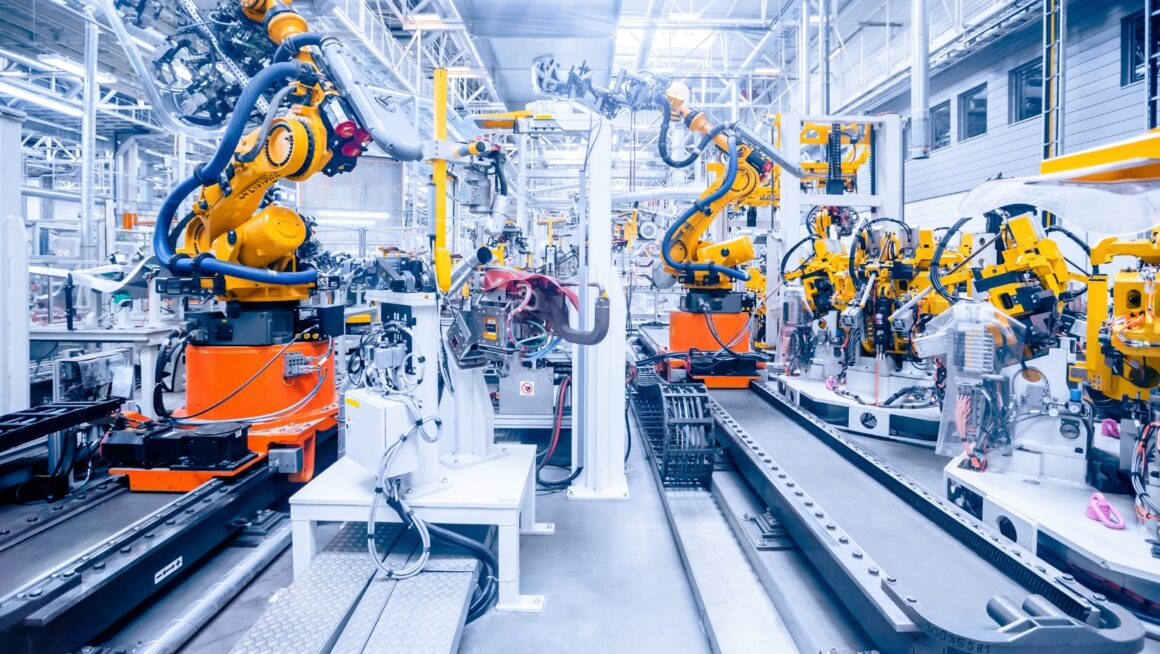Automation and digitalization are transforming industries across the globe. As businesses integrate advanced technologies to streamline operations, improve efficiency, and enhance customer experiences, cybersecurity has become increasingly vital. With a strong digital infrastructure Target, organizations can effectively implement these innovations while safeguarding sensitive data and ensuring the safety of digital systems. The need to protect these systems grows with each technological advancement. Let’s take a look at some of the industries experiencing the greatest shift toward automation and digitalization and explore how cybersecurity is essential for each.
Manufacturing
The manufacturing sector has long been a leader in automation, with robotics and AI playing an integral role in assembly lines and production facilities. Digital technologies are being leveraged for predictive maintenance, quality control, and supply chain optimization. The shift towards Industry 4.0 involves interconnected devices and systems, making factories smarter and more efficient.
However, with this rise in interconnected systems, the risk of cyberattacks also increases. Hackers can target control systems, potentially causing widespread disruptions. A cyberattack on a manufacturing plant could lead to production halts, loss of intellectual property, or even physical damage to equipment. To mitigate these risks, many manufacturers are turning to a security operations centre to monitor and respond to potential cyber threats in real time, ensuring that their digital infrastructure remains secure.
Healthcare
The healthcare industry has been embracing digitalization for years, from electronic health records (EHR) to telemedicine and wearable health devices. Automation is also improving patient care with robotic surgeries, AI-driven diagnostics, and administrative processes like billing and patient scheduling. These innovations not only enhance patient outcomes but also increase efficiency and reduce operational costs.

However, with sensitive patient data moving through digital channels, healthcare is a prime target for cybercriminals. Data breaches, ransomware attacks, and unauthorized access to medical records can have severe consequences, both for patients and healthcare providers. Ensuring cybersecurity in healthcare systems involves encryption of data, multi-factor authentication, and regular software updates to safeguard patient privacy and the integrity of medical devices.
Financial Services
The financial services industry is one of the most heavily impacted by digital transformation. Automation is streamlining everything from trading algorithms to instant loan approvals, customer service, and fraud detection. Digital banking, mobile payment systems, and blockchain technology are revolutionizing how consumers and businesses handle money.
While these advancements bring about greater convenience and faster transactions, they also open the door to new cybersecurity risks. Cyberattacks targeting financial institutions can lead to significant financial losses, identity theft, and fraud. To counter these threats, banks and financial institutions invest heavily in cybersecurity measures such as encryption, fraud detection systems, secure payment gateways, and regular security audits to maintain the trust of their customers.
Retail and E-Commerce
Retail has undergone a massive digital shift, especially in the wake of the COVID-19 pandemic. E-commerce platforms, automated inventory management, personalized shopping experiences, and AI-driven chatbots are helping businesses thrive in the digital age. For instance, the integration of a WhatsApp chatbot enables retailers to deliver instant customer support and streamlined communication, enhancing user experience and engagement.These technologies allow retailers to offer more efficient services, better target customers, and enhance operational efficiencies.
However, as the retail sector becomes more digitized, the risk of cyberattacks increases. Online payment systems, customer data, and supply chain management systems are vulnerable to hacking and data breaches. Retailers must implement robust cybersecurity strategies such as secure payment encryption, customer data protection, regular vulnerability assessments, and employee training to protect sensitive data and ensure business continuity.
Real Estate
The real estate industry is also embracing digital transformation with tools like virtual property tours, automated property management, AI-driven pricing models, and digital contracts. These innovations are making it easier for buyers, sellers, and agents to engage with the market, improving the speed and efficiency of transactions. For example, clients agents in Sydney are increasingly utilizing digital platforms to assist clients in finding the perfect property more efficiently.
However, real estate is no stranger to cybercrime. Sensitive data such as financial records, personal information, and property details are frequently shared online, making real estate firms attractive targets for cybercriminals. Real estate agencies must implement cybersecurity measures such as encryption, secure digital transaction platforms, and access control systems to protect both their clients’ information and their business operations.
Transportation and Logistics
In transportation and logistics, automation and digitalization are being used to improve everything from route planning to fleet management, inventory tracking, and customer service. Technologies like AI, IoT, and autonomous vehicles are revolutionizing the way goods are moved around the world.

However, these advancements come with significant cybersecurity concerns. The reliance on connected devices and autonomous systems makes transportation networks vulnerable to cyberattacks, which could result in disruptions to supply chains, theft of goods, or accidents involving autonomous vehicles. Cybersecurity protocols such as secure IoT devices, real-time threat monitoring, and the implementation of cybersecurity frameworks across the entire logistics network are essential in safeguarding operations.
Conclusion
Automation and digitalization are driving innovation and efficiency across multiple industries, from manufacturing and healthcare to finance, retail, real estate, and transportation. As these sectors continue to embrace new technologies, the importance of cybersecurity cannot be overstated. Protecting digital infrastructure, securing sensitive data, and ensuring the safety of automated systems are vital to maintaining trust, preventing financial losses, and ensuring business continuity. In an increasingly interconnected world, robust cybersecurity is a foundational element for the success of any industry undergoing digital transformation.



